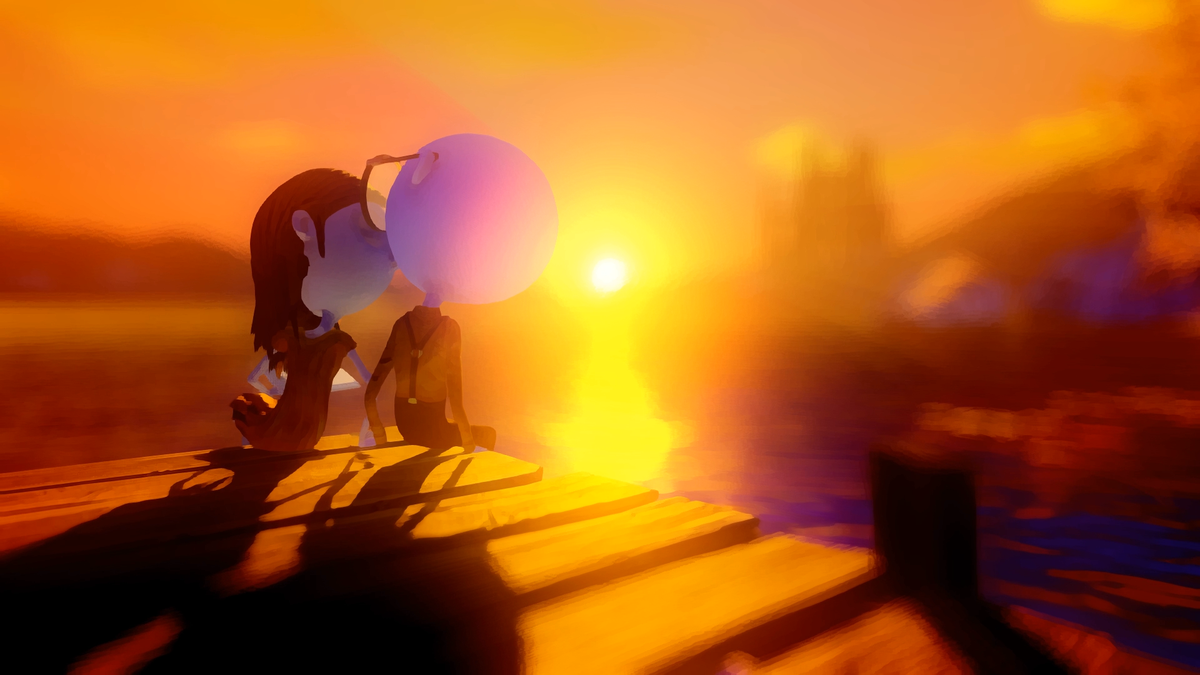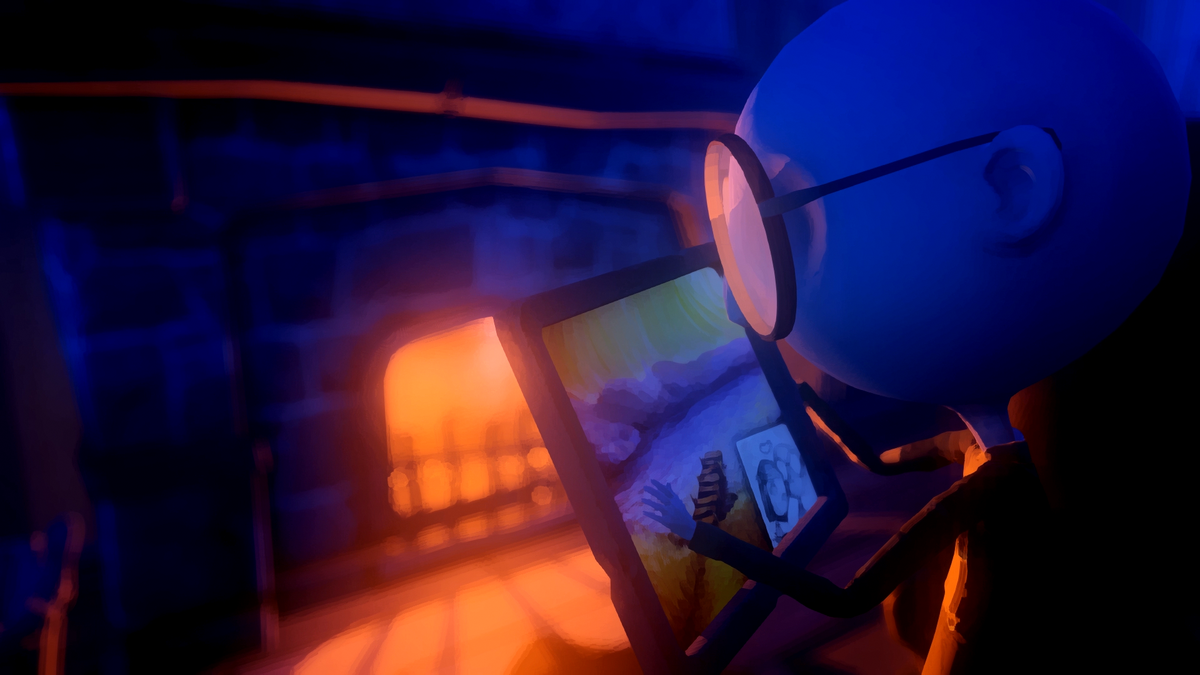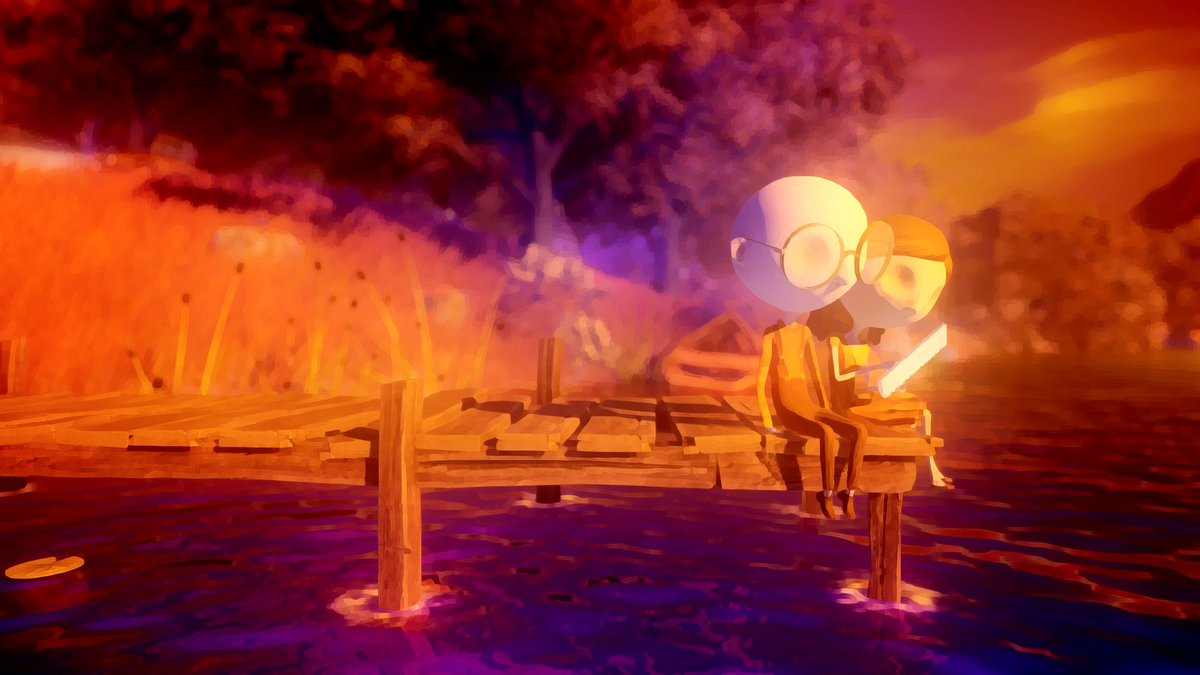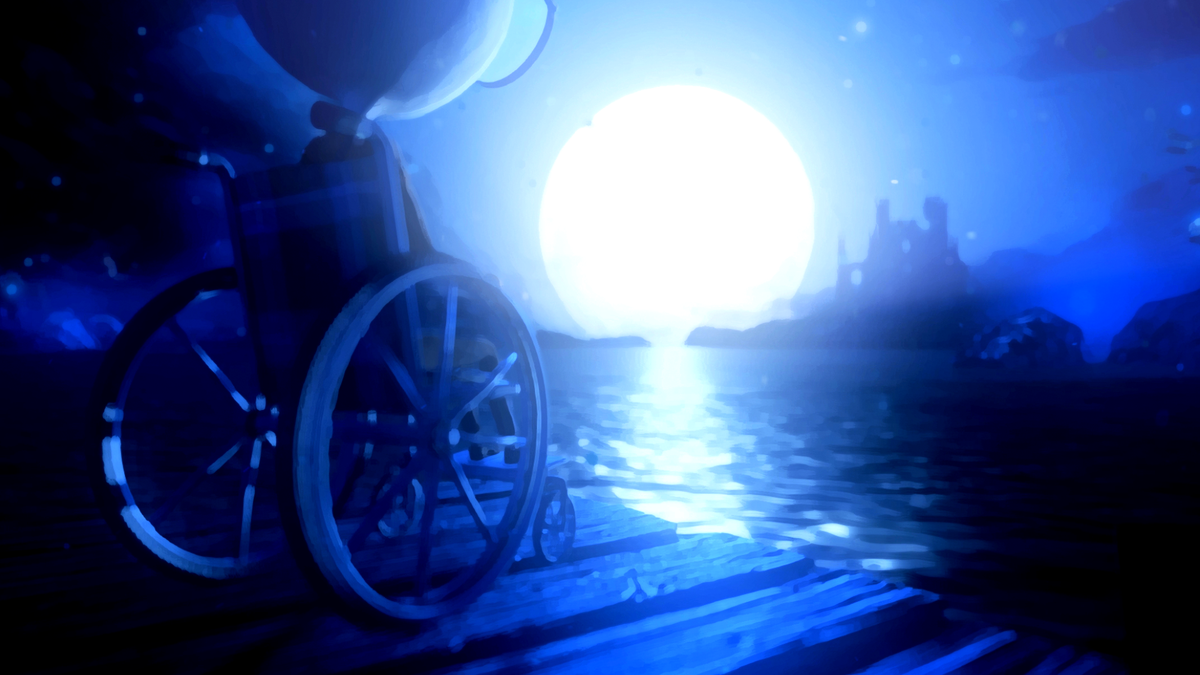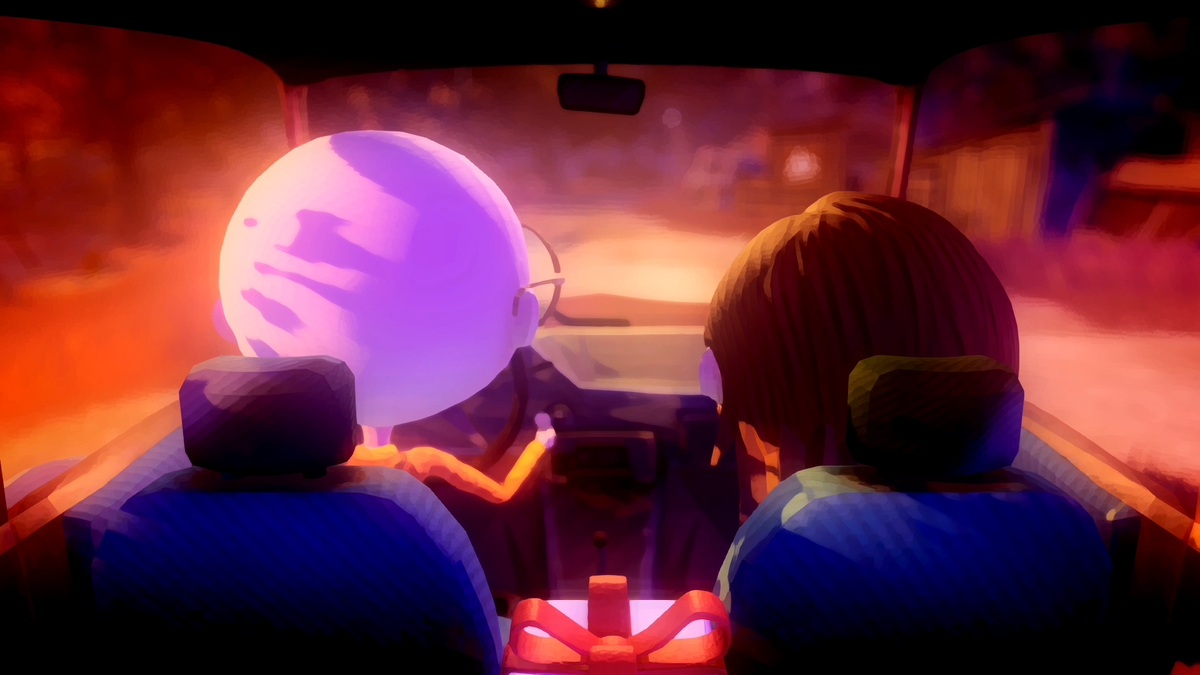It may still only be a relatively small segment of the population that fully appreciates this, but video games can successfully go toe to toe with other forms of media to elicit a powerful emotional response. Taking influence from Steven Wilson's song Drive Home, Last Day of June is a game designed to hit you right in the feels. The player assumes the role of Carl, who recently lost the love of his life in a car accident. The game is Carl wanting to go back to various events leading up to June's death, hoping he can do something different to save her. The specifics vary, but most of us have some moment in our lives forever burned into our memory we wish we could go back and change. Mattia Traverso, Lead Designer at Ovosinco, sat down with us to discuss the upcoming game and some of its influencing factors.
[Hardcore Gamer] Last Day of June doesn't behave like a typical video game. What was your inspiration for creating it?
[Mattia Traverso] I'm certain you have friends that don't play video games. I know I have some that don't.
My wife doesn't play video games.
Does she ever say she doesn't like them?
It's not so much a declaration of dislike but more of a circle of she doesn't want to play them because she isn't good at them but she isn't good at them because she doesn't play them. She doesn't mind me hijacking the TV with all my consoles and she helps with proofreading the stuff I do for Hardcore Gamer. She thinks the trips they send me on are cool but I'll have to bribe her pretty generously to get her to play Dynasty Warriors 9 with me when it comes out.
And that's cool and all, some people like certain things and dislike other things. But if I were to say I don't like music, or I don't like movies, that would sound a bit weird since there is a genre of music for everyone and a type of movie for everyone.
And even people that don't really care about music that much still have some songs they enjoy.
Right, they might have a song they particularly like even though they don't consider music a major interest. But why is it okay to just not like video games? Like people who don't like video games in general the entire art form gets dismissed. We think part of that is there aren't enough games that try to do different things or try to relate to more people and talk about different themes or feelings that we all share. That's not to say we think traditional games are bad, I play Overwatch everyday, I think it's amazing, and I have made a lot of games that are very traditional in the way they work with puzzles, platforming and so on but then we started thinking about trying to make a game that could convince people that don't normally play games to start. We want to do something to hook them in, to show them that video games can do much more. The decision that we made was to base on the game on a particular feeling that I think we all have had, the feeling of wanting to go back in time and change something that happened in your past. We all have regrets, be them tiny or big, like after this interview I will think of something much smarter to tell you, and I will be like oh I should have said that.
That's every interview I do, I always look back and think my questions are so dumb, and then think of an interesting question I should have asked.
(laughs) That's true, I always feel that way about my answers. And we all have instances like that. But not all of us have a feeling of wanting to challenge ourselves in a certain way to beat an opponent or conquer an opponent. Those things make amazing video games but I can see why some people might not find them appealing, where we have all felt that way where we wanted to go back and change things so why don't we make a video game about that feeling that more humans can share and feel. This is about the story of Carl and June, a couple and they are in love and something terrible happens to them. They get into a car accident, and June loses her life. And the whole game is about Carl wanting to go back and change what happened, to figure out what actions have caused this, and to change them and prevent the crash. So it's about time travel, love, and Groundhog Day I guess. That's a very long explanation.
For what you're going for it works because there's not a single person alive who doesn't have some event they want to change in their past. It might be recent or very long ago in the past or may seem trivial to others, but most of us have something we would give anything to redo differently.
Absolutely, and so like the feeling we want to talk about is how sometimes we can change things and sometimes we cannot and how desperate we might be. A lot of the mechanics are really about him trying to figure out all the causes and events that cause the crash and try to change. It's inspired by a song by Steven Wilson, I'm not sure if you're familiar with him.
Steven Wilson... Porcupine Tree? That Steven Wilson?
Yes.
He also teamed up with Mikael Åkerfeldt to do Storm Corrosion.
Porcupine Tree is an amazing band and we are collaborating with him for Last Day of June and the music is great.
That's awesome you got Steven Wilson to do the music for your game.
It is. We saw the music video for his song Drive Home about a car crash and we were inspired and we were like we want to make a game about this song. So we contacted Steven and said let's make a game together and he got back to us and was a bit skeptical because he doesn't really like video games so basically what we did is took five, six months to work really hard on the game and sent him the opening scene where you can see the lake that is in the trailer. We took this back to Steven and he started playing it and saw the way we incorporated some of his music and he said he didn't know you could do this with video games and that part was magical. We managed to convince someone who doesn't like video games of the power they can hold.
A lot of people still view video games as simply things kids play in their parents' basement. They aren't aware of how they have evolved and how a lot of them are designed to appeal to adults and can have writing and emotional impact and can sometimes rival some of the best movies. If games never progressed beyond what they were in the '80s there probably wouldn't be too many adult gamers today but there pretty much is a game out there for everyone. So just to double check, Drive Home is the song the Last Day of June is based on? Want to make sure I link the right song when I transcribe this.
Yes but there are also other songs included in the game. The whole soundtrack is done by Steven Wilson, and Harmony Korine is the song that plays in the trailer. We have Routine, The Raven Who Refused to Sing, and a lot of other songs. We took care to use a lot of songs dynamically, where they would scale up based on intensity. So it's hard to talk about the game without seeing it, I'm used to you being in the room where the demo is but we will go there soon so you can see it. But it has a very water color effect style because we wanted to give a sense that everything you are seeing is sort of eerie, sort of dreamy, and not necessarily normal or real life and we used this shader we call the marmalade shader that blends everything together as if it was gel and it gives it a feeling of dreams and things like memories. I want to be clear that traditional games are amazing and the focus is on the mechanics. You come from Hardcore Gamer so when you think of hardcore gamers you think of things that are very challenging or have complex systems and trying to combine that with a more accessible game is very hard. I can show it to mom, not that my mom has to play every game I make, but if I show the controller to my mom she is scared of playing the game, as I suppose your wife, she is like what am I supposed to do? This thing has 14 buttons, I'm afraid I'm going to (covfefe) it up. I'm sorry, I didn't mean to say (covfefe) it up.
It's okay, I'll figure out a way to censor it when I type it up.
She's like, I'm going to mess this up, I'm going to break the console, and it's the same way with old people and computers, where they are afraid to press ESC and destroy it all. Of course what you want to try to do is simplify the controls so everyone can pick it up and play it but you also don't want to simplify it too much because then traditional gamers will find it boring or uneventful. So what we decided to do is have the prologue be narrative driven and very emotional and linear with some parts with extra content you can find and slowly we start to introduce other mechanics so we make it accessible by being very gradual in the way we introduce the game.
Since the inspiration for this game came from a song and you were able to secure a collaboration with Steven Wilson for the game I get the impression that music pays a significant role in this game, especially in conveying the emotions you intend to. You mentioned a dynamic component of the music relating to in game events, can you go into detail on that?
One way the music is dynamic is at the very end of the prologue where you are driving home, like the song that inspired the game, and the song we are using changes intensity with how fast you are driving the car. To really give you a sense of climax, that things are going on and something is going to happen. It is really important to us to use music as a tool, to set certain emotions or to enhance certain moments of the narrative. Collaborating with Steven Wilson allowed us to have a point of view for the game that is very different than ours. We are gamers, we think of games in certain ways, it is hard to step outside of that box. We take for granted that we can pick up a controller and walk with the left stick and move the camera with the right stick, but this process actually takes a lot of learning. I'm sure that when I was a kid I was really bad at it and took some time to figure it out. If I see somebody who doesn't play video games do that, they usually move, stop, rotate the camera, and move again. So what we tried to do is have the camera hold to a line a little bit to try to help and all of this stuff for us is like meta knowledge, things we acquire and take for granted when we really needed to take some time to look at them and figure out how to make them accessible for people who don't usually play video games. We also want more voices in this and Steven Wilson's is not the only one. We also have Jess Cope, the director of Steven's music videos, so if you see a video of Steven's, Jess probably directed it. She also made the latest video for Metallica. She was really instrumental in helping us draft a story. The original Drive Home video is about a car crash and a story about someone losing their wife similarly to our story but we wanted to go our own way with it. It's inspired by the song and video but not exactly like it. Jess was fundamental in getting that right. She worked with Tim Burton on Frankenweenie and you can see that the game is a bit reminiscent of that, we have characters that have no eyes and they're a bit creepy. And kind of the idea, I don't know if Tim Burton does it for the same reason we do, but we always have to balance out some things in the game. We can't have the game be too sad, otherwise no one would want to play it, so we have to have the character be a bit goofy to balance it out. He doesn't have eyes, which is a bit scary, and the fact that the characters are so creepy combined with how lovable and silly they are makes for a game where you can never really know what to expect. You're always a bit unnerved.
I'm getting a Nightmare Before Christmas type of vibe from what you're describing, like those characters are supposed to be scary but also cute in an odd way.
Exactly.
They have a bit of gothic horror in their appearance but they aren't really threatening or scary.
Right, or evil. I think artistry in storytelling, be it in games or movies or whatever, is making you care about something regardless of what the something is. Think about WALL-E, this very tiny report that doesn't look human but you care about him because he struggles.
Or Big Hero 6 where Baymax isn't even a living thing, he is just some big, cuddly looking thing that wants to protect people.
For sure. And it's about finding, I'm sorry this is not a very gamey interview, I'm sorry about that, but it is about finding why do people care about the things they care about.
It is all relevant to the game. And it's not a traditional game so why do a traditional interview? The readers may disagree with me, but as an interviewer I tend to think my more interesting interviews are the ones that go off the rails a bit.
That's true. Let me tell you about my favorite part of the game. June is a painter, so the house is filled with all these paintings June did. Most of them are of her or Carl or both of them together. And then in the house there is something we put in, and it is one drawing that Carl made of June. It's on the fridge, like when you have a kid and you put something they did on the fridge and you're so proud of what they made regardless of what it is. You can go interact with it, you don't have to, and you find it and it is this absolutely terrible, terrible sketch of June. It looks like something a kid would have made, and that to me is an important detail of the entire game, because it shows Carl doing something for June in a very goofy way, in his own, it's silly, it's not heroic, it's not amazing, it doesn't show any great talent, but it makes him human.
It's relatable. None of us have stories of saving the world or killing some arch demon and that's how we end up getting with the love of our life. It's all these little seemingly trivial or inconsequential things, but to the one or two people it has meaning to it and is the most valuable thing on Earth.
For sure. It's like this book about writing stories for movies called Save the Cat. I think it's Die Hard, I don't remember exactly but before you fully know the characters there is an explosion set to go off and you see a cat. The people are escaping the explosion and they go off screen, but one second later come back and grab the cat to save it. And this is the moment you start caring about them because they're humans, they care about something. So this game was a lot about figuring that stuff out and what makes people people.
Kind of like Alien with Ripley and Jonesy, the big orange cat.
It might have been Alien, I remember it being Die Hard for some reason. I can see Bruce Willis holding a cat.
I can too. He's usually cast in tough guy roles but he does show his human side pretty frequently.
I cannot say much about the mechanics because it's something we are going to be revealing slowly in the coming months but I can tell you it's similar to Groundhog Day, the movie with Bill Murray. Carl tries something and sees how it works out while he is repeating the day before the accident, trying to figure out what caused the accident and how to prevent it.
I just got the signal that I have time for one more. Is there anything else you would like to tell me about Last Day of June before we move to our next appointments?
I will tell you a bit about the studio. We are called Ovosonico. We made a game for the Vita called Murasaki Baby, which was a Sony exclusive in 2014 and this is our first console title so this is a big step for us. We come from a region in the north called Seven Lakes Region and that is where a lot of the coloring in the game stems from. There is a lot of European architecture in the area and we thought it was very important to give you a feeling of where we live to make it more personal, like this is a place people actually live. I hope that by playing the game people get a sense of what it's like to live in a small country part of Italy. I wish that can happen. Last Day of June is coming out in 2017 for Steam and PlayStation 4 and will take four to six hours to complete depending on your play style.


